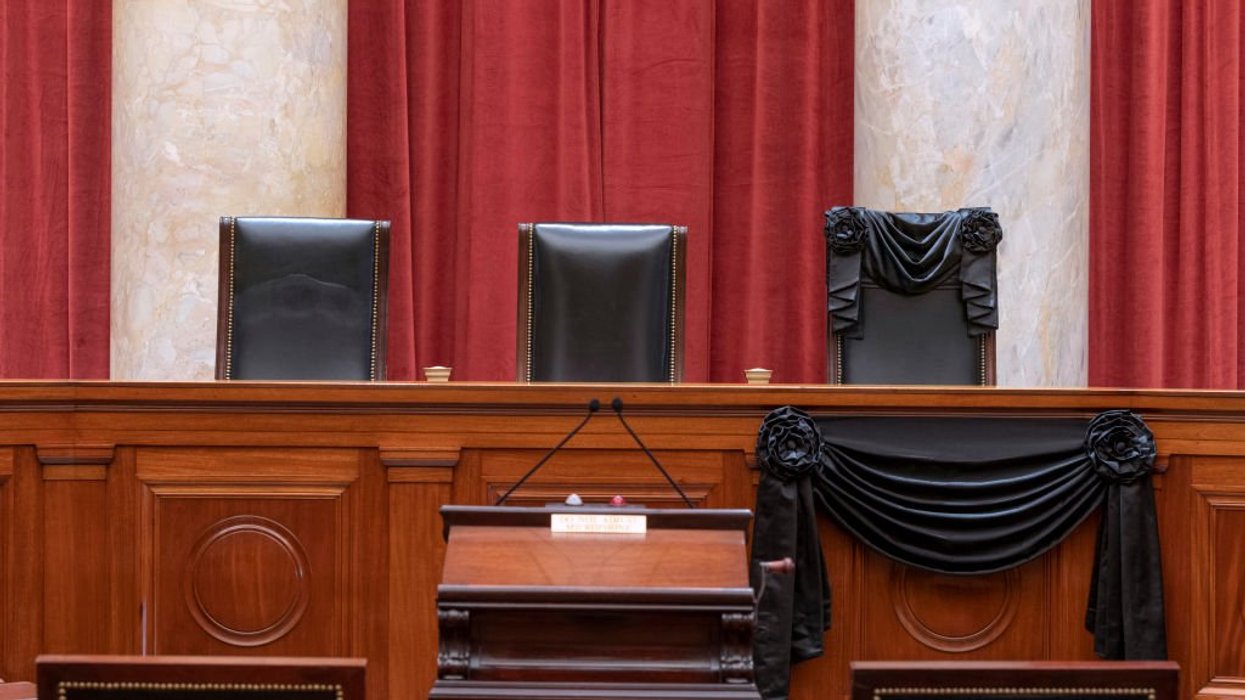Glenn took a deeper look at the new gun laws passed in New York this week that are being called "the most restrictive gun control laws in the country". One of the major components of the new law being that magazines are now limited to holding only seven bullets.
"What's interesting about this," Glenn points out, "is that they didn't include police officers. So, there's no loophole for police officers."
"So if your a police officer, you better arrest yourself," he added.
Another detail now being discovered in this legislation is that it's retroactive up to one year. Gun owners are not simply grandfathered into these new laws. Essentially, one year from this week, you would have to get rid of all of the magazines you own that hold over seven bullets. If you don't, you're breaking the law.
So legally purchased items have now become illegal.
"This is unconstitutional," Pat said. "Say what you will about it, but it's flat out unconstitutional."
"Has there ever been a case of where you purchased something, and it's now illegal?" Glenn asked.
The only circumstance Stu could think of where law may have been enacted retroactively was car emissions regulations.
Just in case these regulations apply to you, here are the facts we were able to dig up on retroactive (ex post facto) laws in the United States Constitution.
Clause 3 of Article 1, Section 9 of the Constitution states that Congress is prohibited from passing ex post facto laws. The states are prohibited in clause 1 of Article 1, Section 10.
This is one of the relatively few restrictions that the United States Constitution made to both the power of the federal and state governments before the Fourteenth Amendment. The case referred to in the rulings of many of these Supreme Court cases is Calder vs. Bull. In the case Justice Samuel Chase held that prohibition applied only to criminal matters, not civil. Four categories of unconstitutional ex post facto laws were established.
There have been cases where retroactive laws have not been held unconstitutional. These include restrictions on convicted sex offenders and sex offender registration. A domestic violence offender gun ban was held up, where firearm prohibitions were imposed on people who have been convicted of misdemeanor domestic-violence offenses and on subjects of restraining orders. Retroactive taxes are also not considered ex post facto laws.
So, while there does seem to be some disparity around regulations and retroactive law, it would appear that if you don't have a criminal background, laws that make something you own illegal when it was purchased legally are unconstitutional.
And they should be. As Stu points out, responsible, law-abiding gun owners are some of the most serious about gun crime. They want people to abide by the law.
"The most serious people on gun safety, and the people most serious about punishing offenders [of gun crime] are the people that I know in the N.R.A.," Glenn added.
Glenn noted the biggest applause lines he gets when giving speeches at the N.R.A. are when he discusses punishing and stopping offenders of gun crime.
"They're responsible with their guns. They know the meaning of a gun. And yet, they're made to look like the monsters," Glenn said.
The people the laws would target — especially retroactive laws — are not criminals. They're not the people committing gun crimes. They're responsible law-abiding citizens that have followed all of the laws.
Despite the unconstitutionality of the new laws, there's another issue. Nobody knows how many magazines a person has.
"Do you announce what magazines you have? Do you just destroy the magazines that you have?" Glenn asked.
It's hard to believe that responsible gun owners will be reporting and handing over magazines they purchased legally. There is no reason to turn a law-abiding citizen into a criminal or to make them feel like a criminal. Like you'll see in the video below, there are legitimate reasons that both Democrats and Republicans should be able to see eye-to-eye on when it comes to gun-ownership and the rights of law-abiding American citizens.


















